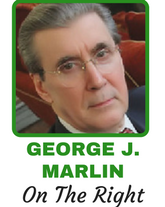With the nursing home scandal roiling the Cuomo administration, it appears the governor’s management style—stonewalling, trusting no one, being secretive, instilling fear in his senior staff, badgering journalists and public officials—has finally caught up with him.
Why has Andrew Cuomo’s governing style approach been so heavy-handed?
Because he is his father’s son.
To understand Andrew, you must understand the man whose footsteps he followed, Gov. Mario Cuomo.
Outside of his family, Mario Cuomo trusted no one. When the journalist Jimmy Breslin, was asked about the governor’s inner circle, he replied: “There’s not enough people to form a circle.”
Similarly, Andrew only trusted Joe Percoco, the man he referred to in his father’s eulogy as Mario’s “third son.” But with Percoco doing time in a federal prison, there has not been anyone who could say to Andrew “No, that’s a stupid idea.” Instead he’s surrounded by sycophants that say “aye, aye, sir” to every ludicrous command.
Mario Cuomo was secretive. Although he claimed his government was transparent, reporters had a hard time prying information out of the administration.
Ditto Andrew Cuomo. The Empire Center for Public Policy had to sue the governor to obtain the true number of COVID nursing home deaths.
When dealing with the press, Mario insisted on being the principal spokesman for his administration. But he distained them. “Reporters,” he said, “are like epidemics. They follow catastrophes.” Another time, The New York Times reported that Mario said “he is adept at talking to schoolchildren…because he deals with them the same way he does with reporters.” He added, “Only the children get it right.”
Watching Andrew’s daily press conferences during the pandemic, it was obvious to me that Andrew had little regard for journalists and treated them like kindergarteners.
Andrew also adopted Mario’s practice of badgering and threatening journalists and public officials.
Mario Cuomo could be verbally brutal with those who disagreed with him. He was known to call reporters or editors at their homes late at night or very early in the morning to complain about their stories. The Times reported that “the governor has berated writers, accused them of doing the bidding of editorial boards and attacked their ethics.”
On one occasion, Mario threatened Times reporter Jeffrey Schmaltz. “I could end your career,” he said. “Your publisher doesn’t even know who you are.”
On another occasion, the noted Times journalist, Adam Nagourney (then the Daily News Albany bureau chief), had an “intense, at times unpleasant” argument with Cuomo, during which the governor said, “I could destroy you if I wanted.”
Andrew Cuomo is also well-known for threatening perceived enemies. A recent example is the call he made to Queens Assemblyman Ron Kim about the nursing home scandal. Kim alleges that Cuomo yelled at him for 10 minutes and threatened to destroy his political career.
Yes, the paranoid governing style of Mario and Andrew is remarkably similar. Nevertheless, there is one major difference between them which may help explain why Mario left public office with honor and why Andrew may not.
Mario Cuomo’s political model was St. Thomas More, the patron saint of lawyers, statesmen and politicians, because he was, in Cuomo’s judgment, a combination of “noble hopes and goals and personal weakness.”
And while Andrew displays in Albany the copy of the Holbein portrait of More that hung in Mario’s office throughout his tenure as governor, Andrew’s political model is a man Thomas More abhorred, Niccolò Machiavelli.
In an essay titled “How a leader’s philosophy directly affects an organization culture,” Peter DeMarco, a former U.S. Secretary of Housing and Urban Development employee, wrote: “One of Cuomo’s first acts after taking over as scretary of HUD in 1997 was to distribute the book by Niccolò Machiavelli, ‘The Prince,’ to his key aides telling them: ‘This is my leadership philosophy.’”
Machiavelli is the man the renowned 20th century political philosopher, Leo Strauss, called “a teacher of evil” because he stooped “to teach maxims of public and private gangsterism.”
Machiavelli’s best-known maxim is “the ends justify the means.” And if Andrew employed that “gangster” precept to rationalize the nursing home cover-up, he will be guilty of licentious conduct, will dishonor his family name and will go down in the annals of New York history as a political blackguard.



